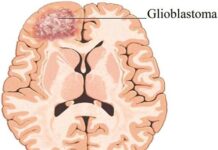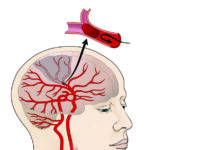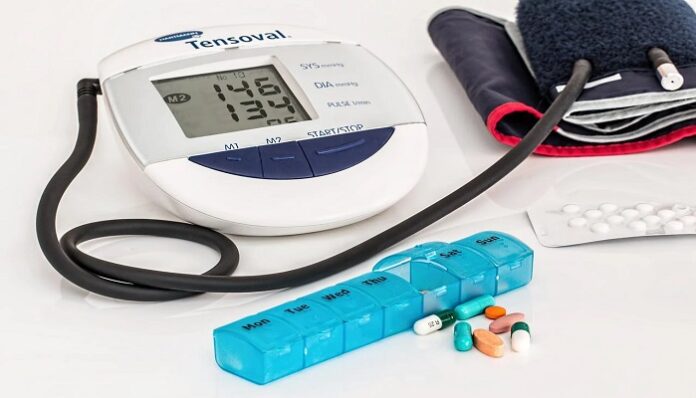A multi-center study of more than 3,000 people with high blood pressure and brain aneurysms found that the use of RAAS inhibitors, a class of blood pressure lowering medications, reduced the risk of an aneurysm rupture by 18%, according to new research published in Hypertension, a journal of the American Heart Association.
If an intracranial aneurysm ruptures, it spills blood around the brain and cuts off oxygen to an affected area, which can cause a hemorrhagic stroke, coma and death. These strokes account for 3-5% of all strokes, but a larger proportion of morbidity and mortality than other types of strokes.
The body’s renin-angiotensin-aldosterone system (RAAS) includes hormones that affect blood pressure regulation, and dysregulation of the RAAS can lead to the development of high blood pressure. Two components of RAAS have been shown to be involved in the development of intracranial aneurysms, and previous research has found that dysregulation of RAAS may also contribute to aneurysm rupture. RAAS inhibitors, medications that block the effects of the RAAS, are often used to treat high blood pressure.
“Approximately half of patients with intracranial aneurysms have high blood pressure, which can cause vascular inflammation and increase the risk of aneurysm rupture,” said the study’s senior author Qinghai Huang, professor of neurosurgery at Changhai Hospital, Second Military Medical University in Shanghai, China.
This multi-center study analyzed data collected from 2016 to 2021 at 20 medical centers in different regions across China, collected pre- and post-rupture, to evaluate the association among the use of RAAS inhibitors and other blood pressure medications, including beta-blockers and diuretics, on the risk of aneurysm rupture.
The analysis found that 32% of participants who took RAAS inhibitors experienced an intracranial aneurysm rupture, compared to 67% of those who used non-RAAS inhibitors. “We were surprised to find that even among people with controlled hypertension, those who took RAAS inhibitors still had a significantly lower rupture risk than individuals who used non-RAAS inhibitors. Our study highlights that using the proper antihypertensive medications to achieve normalization of blood pressure may remarkably decrease the risk of a ruptured aneurysm,” Huang said.
”Based on these data, we estimate that nearly 18% of ruptured aneurysms may be prevented if all patients with high blood pressure and intracranial aneurysms were prescribed with RAAS inhibitors. Due to the strong potential benefit and high safety of RAAS inhibitors, these findings may also help clinicians to optimize treatment to help people with high blood pressure prevent aneurysm rupture.”
Using a multivariable model, the researchers calculated that women’s risk of aneurysm rupture was 1.8 times higher than men’s risk, and that factors such as, uncontrolled hypertension, exposure to second-hand smoke, and untreated Type 2 diabetes increased the risk of aneurysm rupture.
























